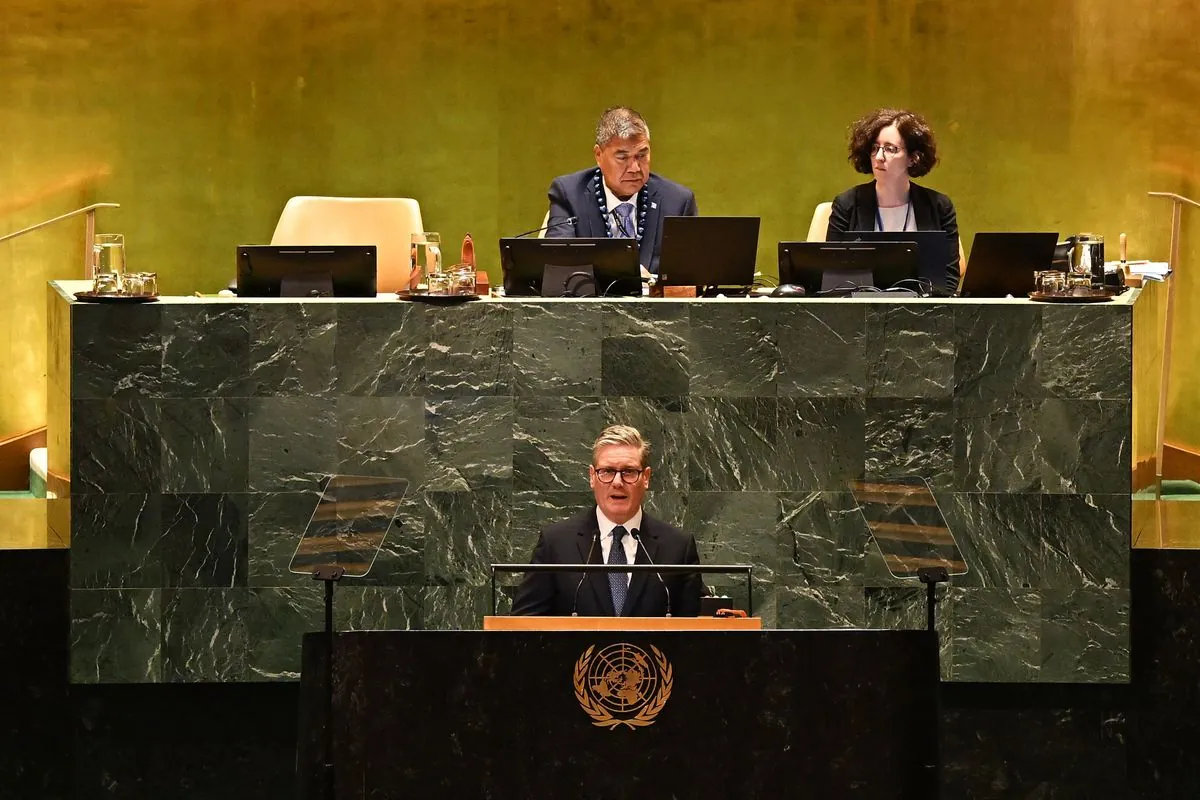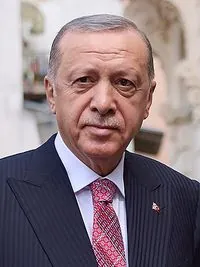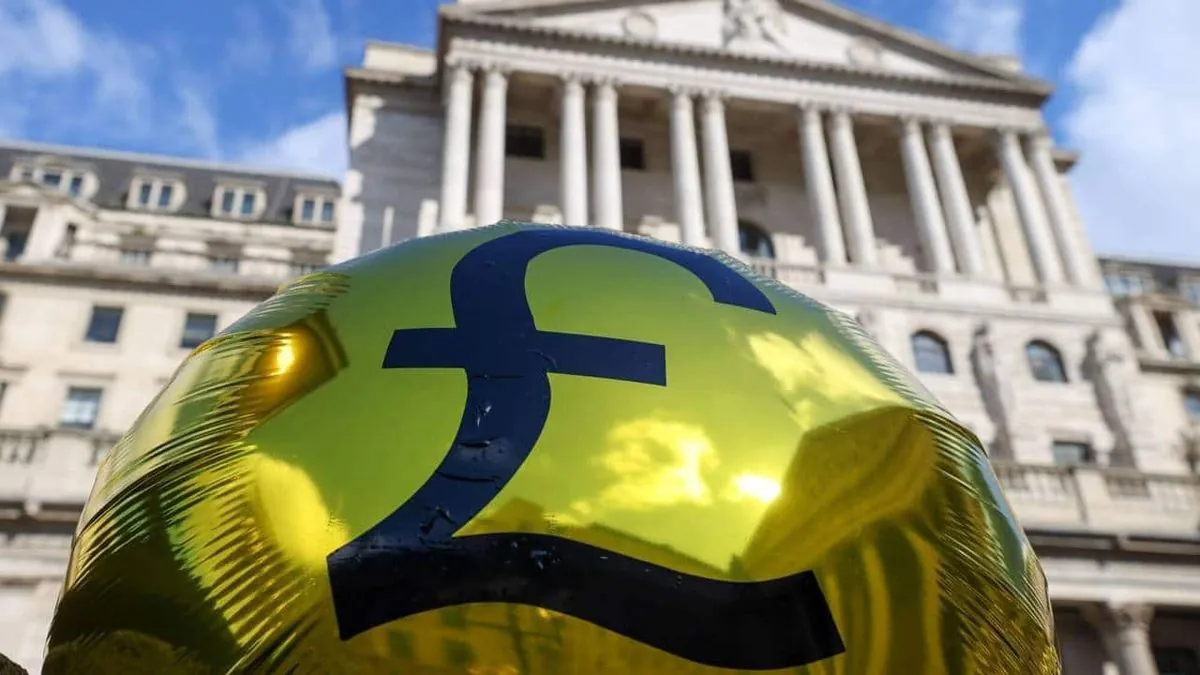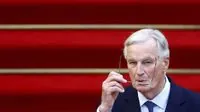Starmer Urges Israel-Hezbollah Ceasefire in UN Speech, Calls for Reforms
Labour leader Keir Starmer addresses UN, calling for Israel-Hezbollah ceasefire and UN reforms. He proposes new investment initiatives and shipping levy to combat climate change, emphasizing UK's role in global leadership.

In a significant address to the United Nations General Assembly on September 26, 2024, Keir Starmer, the leader of the UK's Labour Party, made a compelling plea for peace and reform on the global stage. The speech, delivered just one day ago, touched on several critical international issues and proposed innovative solutions to longstanding problems.
At the forefront of Starmer's address was an urgent call for a ceasefire between Israel and Hezbollah in Lebanon. This conflict, which has its roots in the complex history of the region dating back to Israel's establishment in 1948, has seen escalating tensions along the Israel-Lebanon border. Starmer emphasized the critical need to prevent a wider regional conflict in the Middle East, stating that "further escalation serves no one."
"I call on Israel and Hezbollah. Stop the violence. Step back from the brink. We need to see an immediate ceasefire to provide space for a diplomatic settlement and we are working with all partners to that end."
The Labour leader also addressed the ongoing crisis in Gaza, which has been under blockade since Hamas took control in 2007. He called for an immediate ceasefire in the region and the release of hostages held by Hamas, expressing deep concern over the growing humanitarian crisis.
Starmer's speech wasn't limited to immediate conflicts. He proposed significant reforms to the United Nations, an organization established in 1945 that now comprises 193 member states. He suggested changes to the UN Security Council, which has maintained the same five permanent members since its inception. Starmer advocated for permanent African representation and the inclusion of Brazil, India, Japan, and Germany as permanent members.

In a move towards "responsible global leadership," Starmer announced a new British International Investment initiative. This program aims to leverage billions of pounds from the UK's substantial pension and insurance funds, valued at over £2 trillion, to boost development and combat climate change globally.
Addressing environmental concerns, Starmer proposed an international levy on global shipping, an industry responsible for approximately 3% of global CO2 emissions. This innovative approach aims to "put a price on the true cost of emissions," with proceeds directed towards climate change mitigation efforts.
The speech also reaffirmed the UK's commitment to Ukraine, pledging support "for as long as it takes." This stance underscores the ongoing challenge to international law posed by conflicts like the one in Ukraine, which Starmer described as a test for the UN.
Starmer's address reflected a broader shift in the UK's approach to international relations. He promised a move "from the paternalism of the past towards partnership for the future," emphasizing the need for more listening and less speaking on the global stage.
As the UN General Assembly continues its regular session, which runs from September to December each year, Starmer's speech represents a significant contribution to the ongoing dialogue on global governance, conflict resolution, and sustainable development. It aligns with the UN's Sustainable Development Goals, adopted in 2015 with a target date of 2030, and reflects the evolving concept of responsible global leadership that has gained prominence in the 21st century.


































